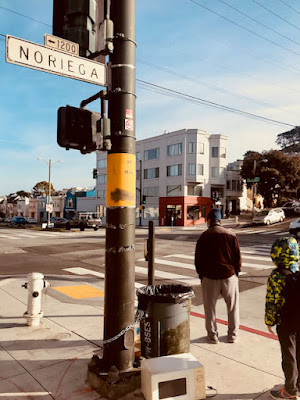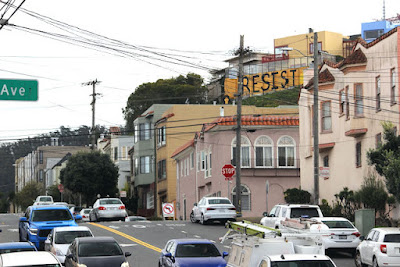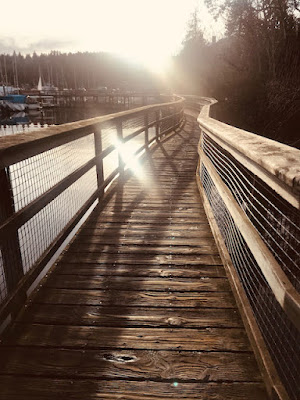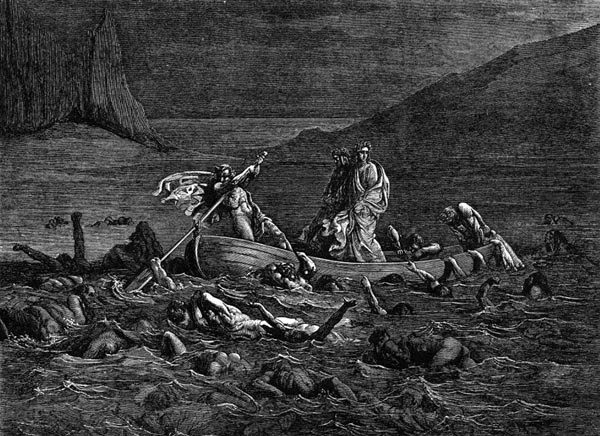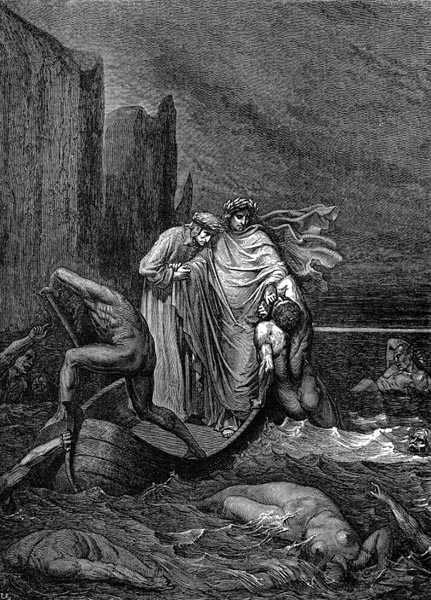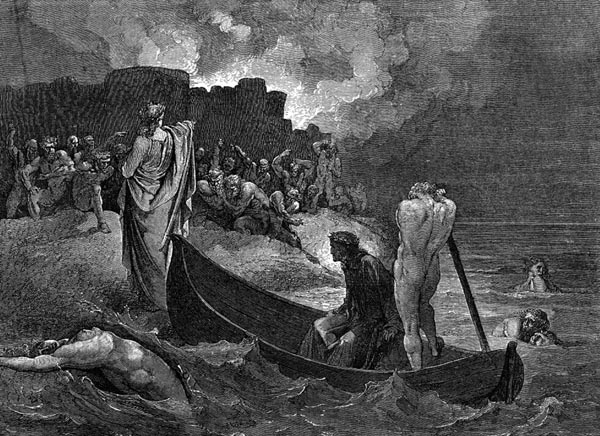[For those who are used to Twitter and need the this to read this in 20 seconds, skip down to the bolded question, What does this have to do with yachts cruising Indonesian islands? For those that want some context (and a little history on how the Anchorage Assembly first got onto cable, start at the beginning.]
Michael Shamberg's
Guerilla Television had put video literacy into my life goals. It pointed out that we are taught to read and write at school and given some skills in recognizing when written language is being used to manipulate us. (This was the 70s when schools still did that. I think many still do, but I'm guessing a lot don't.)
Shamberg's premise was that we were getting so much news via television that we needed that same sort of training in videography. The book was a treatise on what was wrong with how news was created and a citizens handbook for how to make people's videos and how citizen created videos would change the world. This was at a time when video cameras were pretty bulky and pricey, and there weren't any outlets for citizens to show their videos. There weren't even any Blockbusters yet.
I'd say Shamberg was pretty visionary. Eventually cameras on phones gave everyone a pocket video recorder and YouTube offered everyone a people's theater where anyone could show their videos and anyone could watch them. Social media have extended the audience even further.
And so when cable television was beginning to show up I was paying attention. I was reading cable industry journals and even went to a few conferences on cable public access. I was especially excited about the contracts around the country that required the cable companies to set up public access video studios with cameras and editing equipment so people could make their own videos. They also required public access channels to play those citizen made videos on. Sure, the audience was limited to cable viewers, but it was a step in the right direction.
Multivision had bid for the contract in Anchorage. This was 1982 or 83. I was working on loan from the University to the Municipality of Anchorage for a couple of years. I read the Multivision proposal and was dismayed that there was no provision for a public access video studio or a channel for people's video. I kept telling Cathy Allen, Mayor Knowles' chief of staff (I think that was her title) that the Municipality should be demanding that such provisions - modeled from Outside cable agreements - be included in Multivisions' contract. She kept treating me like I was crazy. I kept sending her memos (yeah, email was not available yet) about the Alaska Public Utility Commission's meetings on cable. One was coming up soon where there would be public testimony. On the day of the meeting I got a call to come up to Allen's office right away. She'd just come back from a national conference and a city manager from a big city had sat her down and told her how important it was to have public access in cable contracts. Nothing I hadn't been telling her, but he was more credible to her than I had been. So yes, I could go to the meeting and represent the Muni that afternoon.
Fortunately, I'd been reading the proposal and comparing the prices they were proposing for monthly subscriptions and had lots of information about public access in other cities.
So there I was, at the last minute, running down the street to the meeting. There weren't a lot of people there and they all seemed to be Multivisions boosters. Then my turn to talk came. I nervously compared Multivisions prices to Outside prices and said something like, "I understand it is more expensive to operate in Alaska than it is Outside, but it's NOT three times as expensive!" I also talked about how most cities were requiring cable companies to have public access studies and a public access channel. And I sat down.
At the next break, I was mobbed by six or seven people asking me, essentially, "who the hell are you?" did I really represented the Muni.
As time went by I was back arguing that Multivisions should be televising the Assembly meetings live. Not possible they said. At that time they were meeting in the Muni's Tudor Road buildings and they said it wasn't wired for cable. It would have to wait until the new Loussac Library opened.
But for some reason the Assembly had to move out of the Tudor building and temporarily went to the new Convention Center on 5th Avenue. And I knew that building was wired. By that time I'd gotten some others to join me and we had set up a non-profit for this project - something like Anchorage Media Access Group. I lobbied the Assembly members and they agreed to a six month trial and allotted a paltry sum - maybe $3000 for that. Our non-profit sent out an RFP to every third video business in the Anchorage media resources book. We got two bids. One was way beyond the money the Assembly offered. The other was a budding videographer who agreed to do it at a ridiculously low price with the help of volunteers (ourselves and a few others) who would staff the cameras for him.
At first, he balked. He couldn't trust his expensive cameras to volunteers. But he relented when we pointed out that he couldn't afford to do it any other way. And so the Assembly began its six months experiment being broadcast live on Anchorage cable.
While Assembly members had had a number of doubts - it would lead to grandstanding, those without cable wouldn't have access, etc. - after several weeks they were all won over. They had so many people say they saw them on cable and they had people showing up saying they were watching at home and had to come down to testify. At the end of the six months they approved a much larger budget and our videographer got the contract and we stopped having to supply volunteers. We disbanded our non-profit and gave the Assembly back the $500 we still had left and asked them to use it to support televising the Assembly.
What does this have to do with yachts cruising Indonesian islands?
Somewhere along this cable path, I got an invitation from Multivision to go on a float trip on the Yentna River with Ted Turner whom they were bringing up to Alaska. That sounded very cool, but unlike a certain US Supreme Court justice, I didn't consider accepting for a second.
I understood that I hadn't been randomly selected for this honor, but that it had to do with my advocacy for a better deal for Anchorage citizens and my advocacy for getting the Anchorage Assembly live on cable. And that this might be their way to get me to tone it down or who knows?. I thanked them and said I couldn't accept their offer.
Clarence Thomas, on the other hand, seems to have had no qualms about accepting annual half-a-million dollar vacations and didn't see it necessary to report these on his annual financial disclosure forms.
The wealthy Republicans have been smart and have taken a long range planning approach to maintain power. When Bork got turned down for the Court, they apparently realized democracy was no longer enough.
Lobbying has been a traditional way to get legislators to vote against the interests of their constituents. This relationship is strengthened by campaign contributions. And secrecy. But even better would be owning a Supreme Court that decided their way if the legislature wouldn't.
The Democrats have not been as Machiavellian and were not very good as spotting the stealth takeover of the Supreme Court the Republicans, through the Federalist Society, had worked on for so many years.
And with Trump as president, they succeeded in taking over the Court. Justice Kennedy abruptly resigned to make room for Kavanaugh. I'm still certain there's a cloak and dagger story about how Kennedy was convinced to step down, that would include his son's work for Deutsche Bank, the last major bank still willing to lend money to Trump for his projects. And Justin Kennedy was the man who made those loans happen.
But since Trump essentially turned the job of picking his court nominees over to the Federalist Society, it's pretty clear that they had something to do with Kennedy's resignation as well. The first link is to a speech by Sen. Whitehouse - the Senate's most active and vocal observer of how the Federalist Society has managed the sharp lurch to the right of the Supreme Court. But for those of you who need a different source, here's a report from The Hill. Speculation? Sure. But a lot of clues point in the right direction. And like Thomas' vacations with the Crows, I'm pretty certain there's lots we don't yet know. At least there are facts and motives pointing in this direction, which is way more than the Republicans have for every major scandal they scream about daily.
Breakdown of Norms
From Oxford Bibliographies:
"[Norms] are most commonly defined as rules or expectations that are socially enforced. Norms may be prescriptive (encouraging positive behavior; for example, “be honest”) or proscriptive (discouraging negative behavior; for example, “do not cheat”)."
Basically, norms are the rules that are socially, rather than legally, enforced. When people break the norms, public opinion is the force that 'rules' the consequences. Politicians lose elections, officials resign their posts.
But we're in a period where Republicans, particularly, are no longer constrained by norms. They're no longer constrained by laws. (Sure, politicians on both sides have fudged the law forever, but they did it clandestinely, not flagrantly out in the open.) While Trump is by far the most egregious example, his Republican colleagues in the House and Senate have gone along. The Senate had the power to remove him from office after the House voted for impeachment. Twice.
They didn't. Instead, they rammed through the nominations of Kavanaugh and Barrett.
Not all the Republicans are completely craven, but they are all much more interested in their reelections than they are in maintaining traditional norms of appearing to support the public interest,
And Fox News, particularly, has worked closely with Trump to make sure their viewers are fed the stories they (the viewers) want to hear, no matter how much they deviate from truth. Those Republicans who stood up to Trump, even slightly, have either retired (rather than face Trump's cult in the primaries) or they were defeated in the primaries. Alaska's Senator Murkowski is the only exception I know of. She used a write-in campaign to overcome a primary defeat in 2012. In 2022, Alaska's new Ranked ChoiceVoting went into effect, which eliminated closed party primaries and put all candidates for each office into one primary.
The wealthy Right Wingers know that their ideas are not popular with the voters. Ending abortion, no restrictions on guns, racial discrimination, election manipulation are all opposed by healthy majorities of the general population.
To win, Republicans have to rig the game. Pack the Supreme Court with judges who rule in favor of business most of the time. Gerrymander state voting districts to get far more Republicans elected even when the actual numbers of both parties are much more even. Suppress the votes of minorities and the young in as many ways as they can think of. Oppose all bills to help overcome the disparities in wealth, access to food, housing, education, and health care. In fact oppose all legislation that might be good for the country that Biden could take credit for. And now we're seeing the truly power obsessed trying to control women's rights to decide their own health care, even banning out of state travel for those seeking abortions.
With a strong Supreme Court majority, Republican governors are writing laws so far out of the bounds of US social norms and violate decades old Supreme Court precedents. They are doing this in anticipation of the new Federalist Society judges overturning all those precedents as just as they overturned Roe v. Wade. Voting rights? We're back to a post Civil War Supreme Court that used States' Rights to allow disenfranchisement of blacks and lynchings among other terrible practices.
And when Clarence Thomas says in his brief official statement that he read the rules and consulted with others and they said he didn't have to report transportation, he's telling me that he has NO business being a US Supreme Court Justice.
- First, this is so extreme an example - half a million dollar vacations for 20 years! Any reasonable person knows this sort of 'gift' needs to be reported (I didn't have to go to law school to know accepting a pricey trip with a celebrity was the wrong thing to do.)
- Second, if Thomas has trouble interpreting such obvious and simple disclosure rules for judicial gifts, then he is hardly qualified to interpret the US Constitution.
- Third, if he is capable of such interpretation, then he's intentionally flouting the rules and the norms for his own advantage. In this case his perceived best interest was non-disclosure. One would assume that is also how he often interprets the law and the Constitution in his Supreme Court decisions.
- Fourth, hanging out with the Crows and their yachting friends helps to shape his ideas of his own best interests and appropriate interpretations of the Constitution.
CONCLUSIONS
Like most such issues, this one is entangled in many overlapping contexts of law, of history, of politics, of economics, of ethics, that it is difficult to discuss it without either leaving important points out or without getting so long and complicated people won't finish.
A key issue I'm leaving out is accountability of career and elected public officials. Of course Trump and Fox have so violated societal norms of behavior and of truth telling that we seem to be in a completely different place than we were five or six years ago. Though another part of me believes that the craziness we hear these days has always existed. But today's technology enables much more of it to be seen and heard by the public.
If that's true, the good news is that all this ugliness is being exposed - from police brutality to overt racism (OK, those two are probably intertwined), to sexual abuse, etc. The bad news is those with norm-violating behavior and thoughts have found support for their anti-democracy desires.
Before the Republicans get ultimate control of the courts and can manipulate all elections, we need to get all the folks who are still within traditional norms, but have given up on voting, to go vote. There are still tens of millions of people who have come up with excuses not to vote. (And this is also in part due to the Right's propaganda about how terrible government is, Democrats are, and how corrupt elections are.)
Those who want Democracy to carry on have an obligation to get everyone who doesn't normally vote, to vote in the next few elections. And the Republicans' extreme power grabbing - abortions bans, LGBTQ+ baiting, anti-Semitism, book banning, expulsion of duly elected legislators are all helping to get those voters to the polls in the next elections.
We need enough Democrats in state legislatures and in Congress to overcome Republican attempts to turn the US into an authoritarian regime favoring wealthy white males who distort the Bible to further their interests.










